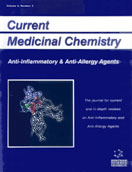Abstract
T cell development begins during late gestation and continues well into adulthood. A special property of T lymphopoiesis is that it involves the periodic migration of progenitor cells from their site of production (fetal liver or adult bone marrow) to the thymus where they complete their development. As thymocytes progress through distinct stages of maturation they migrate into and between different thymus microenvironments where they are exposed to growth factors and receive specialized signals that are required for their development. Chemokines are a group of small, structurally related molecules that regulate trafficking of leukocytes through interactions with a subset of seven-transmembrane, G protein-coupled receptors. Several different chemokines are produced in the thymus and expression of the receptors for these chemokines on thymocyte subpopulations is developmentally regulated. The recent generation of chemokine / chemokine receptor deficient mice has revealed important functions for these molecules in regulating movement of cells into and through the thymus. In this review, we discuss current data relating to the role of chemokines and chemokine receptors in T cell development.
Keywords: chemokines, thymus, development, trafficking
 2
2

